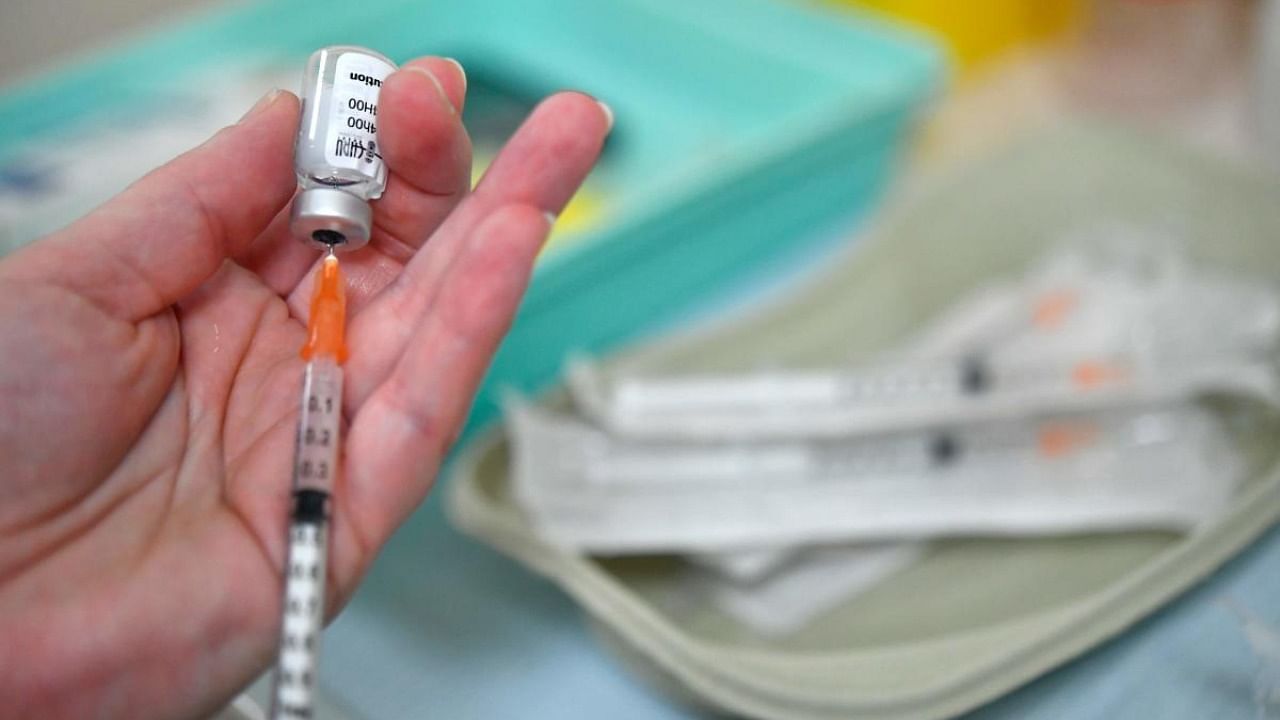
As the French government seeks to ramp up its lagging Covid-19 vaccination campaign, it faces a tricky challenge: convincing all doctors to back the jabs, even though some share the same hesitations as the general population.
Despite France's record of pioneering vaccine work, surveys show it has become one of the most sceptical countries in the world after the emergence of a powerful "anti-vax" movement that has pushed conspiracy theories.
At the end of 2020, only 40 per cent of French people planned to get inoculated against the coronavirus, while a new poll on Friday showed that the figure had risen to 56 per cent -- still far below the average of other developed countries.
Pierre Verger, a researcher who studies attitudes to vaccination among French GPs, published his latest data on Friday that revealed a smaller but significant level of hesitation among GPs.
Around half (47 per cent) of 1,200 doctors surveyed declared that they would "certainly" get a Covid-19 jab, the study backed by the DREES public health research body found.
The rest expressed doubts to a greater or lesser extent: 29 per cent said they would "probably" get vaccinated, while one in 10 (11 per cent) would "probably not" or "definitely not". Another 14 per cent did not answer, the research in October and November showed.
"We're a long way from having mass commitment and acceptance," Verger told AFP, saying the results confirmed those of a previous study in 2014.
"If the level of hesitation among doctors does not go down, it will be a brake on the vaccination campaign under way," he added.
This is a concern for the French government as it tries to accelerate after a slow start -- but it has implications for all countries with significant public opposition to the new Covid-19 vaccines.
Verger said research in Belgium and French-speaking Canada showed broadly similar results among doctors to France, while only 50 per cent of German nurses said they would get a vaccine in a December survey by the DGIIN and DIVI medical societies.
France's government sees general practitioners playing a vital role in the campaign to vaccinate its population of more than 65 million because of their ability to cut through widespread misinformation.
Some of this has been sown by other medical professionals.
The makers of "Hold-up", a widely debunked French film about the coronavirus pandemic, featured Christian Perronne, head of an infectious diseases department at a hospital in northern France, who has since been removed from his position.
By implying the pandemic was a manufactured emergency to benefit pharmaceutical companies, Perronne has become a a top-selling author and a leading light in anti-vax circles, along with oncologist Henri Joyeux from the southern city of Montpellier.
Antoine Bristielle, a researcher who recently authored a report on vaccine scepticism for the Jean-Jaures Foundation, a think-tank, said doctors are trusted to combat these views in a way that politicians and national scientific institutions are not.
"In France, people place a lot of confidence in their GPs to get information about vaccines," he told AFP. "If your GP says 'go and get vaccinated,' it's a powerful message. On the other hand, if they are hesitating themselves, it can increase scepticism."
Overall, the survey published by DREES on Friday showed that half of doctors would "certainly" recommend the new jabs and 29 per cent "probably", while around one in five (21 per cent) were either opposed or did not give an answer.
Faced with fierce criticism over the low numbers of people innoculated so far -- around 45,000 since late December -- the government is now pivoting to a strategy of opening up hundreds of mass vaccination centres nationally.
Verger and Bristielle say they believe doctors will grow more confident if the government continues to be transparent with studies and data, a view endorsed by Paris-based infectious diseases specialist Solen Kerneis.
She said she felt "emotional" and delighted this week after administering her first jab to a nurse colleague at the Bichat public hospital in Paris.
But she understands why some colleagues might be hesitating.
"The main question posed by a vaccine that has been developed so quickly is 'is it safe?'" she told AFP. "As a scientist myself, I asked myself questions. I read scientific reports that reassured me. Our work is to explain, while being transparent."